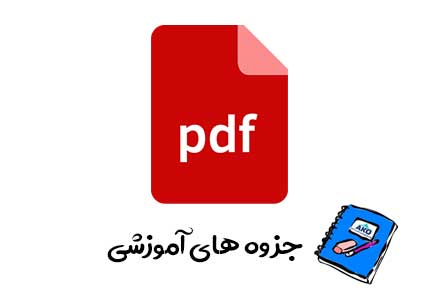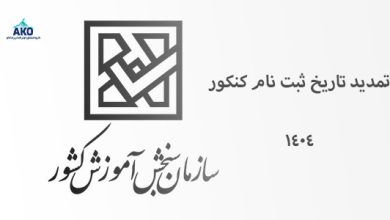به این نوشته امتیاز دهید
در این قسمت تمام واژگان درس 1 زبان انگلیسی یازدهم را برای شما قرار داده ایم. این واژگان شامل معنی، مترادف و یک مثال کاربردی برای هر لغت می باشد. لغات درس 1 یازدهم به نسبت لغات مهم و کاربردی هستند.
| Word | Definition | Example | Meaning |
| written /ˈrɪtn̩/ adj. | using writing and not speech | a written exam/test written communication skills | نوشتاری/ کتبی |
| available /əˈveɪləbəl/ adj. | that you can get, buy or find | Parking is available for people staying at the hotel. | /در دسترس موجود |
| deaf /def/ adj. | [more deaf; most deaf] not able to hear | She is deaf in one ear. | کر/ فاقد قوه شنوایی |
| sign language /ˈsaɪnlæŋɡwɪdʒ/ n. | a language that uses hand movements instead of spoken words, used by people who cannot hear well | They communicate in sign language. | زبان اشاره |
| communicate /kəˈmjuːnɪkeɪt/ v. | to exchange information or conversation with other people, using words, signs, writing etc | We communicated mostly by e-mail. | ارتباط برقرار کردن |
| familiar /fəˈmɪliər/ adj. | knowing something very well | I’m not very familiar with that area. | آشنا |
| parking lot /ˈpɑːrkɪŋlɑːt/ n. | an area where people can leave their cars SYN car park British English | Why can’t we leave the car in this parking lot? | پارکینگ |
| keep off [ phrasal v.] | to stop (sb or sth) from being on (sth) | Keep [=stay] off the grass. [=do not walk on the grass] | دست نگه داشتن/ دوری کردن |
| activity /ækˈtɪvəti/n. | a thing that you do | The streets were noisy and full of activity. | فعالیت |
| frequently /ˈfriːkwəntli/adv. | Often | Buses run frequently between the city and the airport. | اغلب |
| foreigner /ˈfɔːrənər/ , /ˈfɑːrənər/n. | (sometimes offensive) a person who comes from a different country | About 40 million foreigners visited the US last year. | خارجی |
| besides /bɪˈsaɪdz/ prep. | In addition to sb/sth; apart from sb/sth | There’s no one here besides [=except] me. She wants to learn other languages besides English and French. | /بجز، در کنار بعلاوه |
| mother tongue /ˌmʌðərˈtʌŋ/ n. | the language that you first learn to speak when you are a child SYN first language, native language/tongue | He speaks English fluently but his mother tongue [=native language, first language] is Chinese. | زبان مادری/ زبان اصلی |
| experience /ɪkˈspɪriəns/ n. | skill or knowledge that you get by doing something | She knew from past experience that Ann would not give up easily. | تجربه |
| absolutely /ˈæbsəluːtli/ adv. | Completely or totally used to emphasize that something is completely true | He is absolutely sure who will win. | کاملا/ قطعا |
| fluent /ˈfluːənt/ adj. | able to speak a language easily and very well | a fluent speaker of Chinese He is fluent in Chinese. | روان/ سلیس/ فصیح |
| fluently /ˈfluːəntli/ adv. | If you speak a language or read fluently, you speak or read easily and well | She speaks German fluently. | به طور روان و سلیس |
| honest /ˈɑːnɪst/ adj. | someone who is honest always tells the truth and does not cheat or steal OPP dishonest | You can trust Noah – he’s totally honest. | صادق/ راستگو |
| to be honest (with you) spoken | used when you tell someone what you really think | To be honest, I don’t like him very much. She horrifies me, to be honest. | راستشو بخوای/… صادقانه بگم |
| point /pɔɪnt/n. | an idea that you try to make other people accept or understand | There are three important points we must keep in mind. | نکته/ موضوع |
| as early as possible | as soon or quickly as you can | I need the money as soon as possible. | در اسرع وقت |
| host /hoʊst/ v. | to be the host for a social event to introduce a radio or television program | Which country is going to host the next World Cup? The show, hosted by journalist Robert Elms, features movie stars and singers. | /میزبانی کردن برگزار کردن |
| interview /ˈɪntərvjuː/ v. | to ask somebody questions about their life, opinions, etc., especially on the radio, television, etc. | Next week, I will be interviewing Spielberg about his latest movie. | مصاحبه کردن |
| institute /ˈɪnstɪtuːt/ n. | an organization created for a particular purpose (such as research or education) | They started an institute for research into the causes of mental illness. | آموزشگاه/ موسسه |
| Word | Definition | Example | Meaning |
| region /ˈriːdʒən/ n. | a large area of a country or of the world, usually without exact limits SYN area | The country is divided into 17 regions. | منطقه/ ناحیه |
| continent /ˈkɑːntɪnənt/ n. | one of the great divisions of land (such as North America, South America, Europe, Asia, Africa, Australia, or Antarctica) of the Earth | the African continent = the continent of Africa | قاره |
| exist /ɪɡˈzɪst/ v. | to have actual being : to be real | Does life exist on Mars? | وجود داشتن |
| native /ˈneɪtɪv/ adj. | your native country, town etc is the place where you were born | They never saw their native country again. | بومی/ اصلی |
| native (to…) | (of animals and plants) existing naturally in a place SYN indigenous | These fish are native to North America. | …بومی |
| native speaker /ˌneɪtɪvˈspiːkər/ n. | a person who speaks a language as their first language and has not learned it as a foreign language | Native speakers of a language can range in number from verylarge to very small. | متکلم بومی/ زبان اصلی |
| range /reɪndʒ/ v. | to include everything between specified limits | There were 120 students whose ages ranged from 10 to 18. The shoes range in price from ۲۵to25��100. | محدوده/ برد/ حوزه |
| popular /ˈpɑːpjələr/ adj. | 1 liked by a lot of people OPP unpopular 2 done by a lot of people in a society, group etc | 1 Coffee is probably the most popular drink in the world. 2 The most popular language in the world is Chinese. | .1 محبوب 2.معروف، مشهور |
| percent /pərˈsent/ n. | (pl. percent) one part in every hundred (symbol %) | Thirty percent [=³/₁₀] of the class passed the test. | درصد |
| imagine /ɪˈmædʒɪn/ v. | to think of or create sth in your mind | Close your eyes and imagine (that) you are in a forest. | تصور کردن |
| meet a need/ condition etc | to do something that someone wants, needs, or expects you to do | We have enough money to meet our needs. [=to pay for the things that we need] | پاسخ دادن به نیاز |
| century /ˈsentʃəri/ n. | (pl. centuries) a period of 100 years | It took more than a century to complete the mosque. | قرن |
| explain /ɪkˈspleɪn/ v. | to make (something) clear or easy to understand | The professor explained the poem to the class. | توضیح دادن |
| means /miːnz/ n. | (pl. means) a way of doing or achieving something | The only means of communication was sign language. | وسیله/ روش/ شیوه |
| by means of | through the use of (sth) | The heavy box was lifted by means of a crane. | بوسیله |
| society /səˈsaɪəti/ n. | (pl. societies) a particular group of people who live together or share the same traditions, laws, etc. | They did research into the roles of men and women in today’s society. We need to do more to help the poorer members of our society. | جامعه |
| ability /əˈbɪləti/ n. | the power or skill to do somethingOPP inability | It’s important to discover the natural abilities of each child. | توانایی |
| skill /skɪl/ n. | the ability to do something well | Reading and writing are two different skills. | مهارت |
| mental /ˈmentl/ adj. | of or relating to the mind; existing or happening in the mind | She was beginning to show signs of mental illness. | ذهنی |
| vary /ˈveri/ , /ˈværi/ v. | to be different or to become different SYN change | The cost of a room at the hotel varies with the season. The hotel rooms vary in size, but all have televisions and telephones. | تغییر کردن/ متنوع ساختن/ فرق داشتن |
| make up phrasal v. | to form something SYN constitute | Oxygen makes up about 20% of the atmosphere. | ساخته شدن از/ متشکل از |
| population /ˌpɑːpjuˈleɪʃn/n. | the number of people who live in a place | The world’s population has increased greatly. | جمعیت |
| despite /dɪˈspaɪt/ preposition | used to say that something happens or is true even though something else might have stopped it SYN in spite of | She went to Spain despite the fact that her doctor had told her to rest. | با وجود/ با اینکه/ علارقم |
| notice /ˈnoʊtɪs/n. | attention that people give to someone or something | No one took much notice of her [=no one paid much attention to her] at the party. | توجه |
| Word | Definition | Example | Meaning |
| spoken /ˈspoʊkən/ adj. | using speech and not writing | This book will help you with both spoken and written English. | شفاهی/ گفتاری |
| exchange /ɪksˈtʃeɪndʒ/ v. | to give something and receive something in return | We exchange gifts [=give gifts to each other] at the holidays. | تبادل کردن |
| surprising /sərˈpraɪzɪŋ/ adj. | unexpected or unusual | In such a small town it was surprising to find so many really good restaurants. | شگفت انگیز/ حیرت آور |
| Oceania /ˌoʊʃiˈɑːniə/n. | lands of the central and southern Pacific Ocean | Oceanian /ˌoʊʃiˈænijən/ adj. or noun | اقیانوسیه |
| interestingly /ˈɪntrəstɪŋli/adv. | in a way that attracts your attention because it is special or unusual | Interestingly, none of their three children ever married. | به طور حیرت آور |
| grow /ɡroʊ/ v. | : become | The skies grew dark and it began to rain. | شدن |
| valuable /ˈvæljuəbl/ adj. | very useful or important worth a lot of moneyOPP worthless | The Internet can be a very valuable learning tool. The watch is extremely valuable. | باارزش |
| impossible /ɪmˈpɑːsəbl/ adj. | that cannot exist or be done; not possible | It’s impossible for me to be there before eight. | غیر ممکن |
| therefore /ˈðerfɔːr/ adv. | for that reason : because of that | Their car was bigger and therefore more comfortable. | بنابراین |
| no matter how/ whether/ what etc | used to say that something is true or that something happens whatever the situation is | Call me when you get there, no matter what the time is. | مهم نیست |
| scan /skæn/v. | to look over or read (something) quickly SYN skim | She quickly scanned the pages of the newspaper. | اجمالا بررسی کردن |
| look for sth or sb phrasal v. | to search for (someone or something) SYN search for | She’s looking for a new job. | دنبال کسی یا چیزی گشتن |
| specific /spəˈsɪfɪk/ adj. | special or particular | games suitable for specific age groups | مخصوص/ خاص/ معین |
| mind /maɪnd/ n. | the part of a person that thinks, feels, and remembers | There were all kinds of thoughts running through my mind. | ذهن |
| mark /mɑːrk/ v. | to write or draw on something, so that someone will notice what you have written | I’ve marked the pages you need to look at. | علامت زدن |
| belong /bɪˈlɔːŋ/ v. | (not used in the progressive tenses) to be in the right or suitable place | Can you put the chair back where it belongs? | متعلق بودن/ جای مناسب قرار دادن |
| tiny /ˈtaɪni/adj. | (tinier, tiniest) very small | a tiny baby bird | بسیار کوچک |
| disappear /ˌdɪsəˈpɪr/v. | to stop existing : to die or go away completely | The dinosaurs disappeared millions of years ago. | /ناپدید شدن مردن |
| live /laɪv/ adj. | living; not dead having life : living or alive SYNliving OPP dead | They are against experiments on live animals. | زنده |
| cultural /ˈkʌltʃərəl/ adj. | [usually before noun] belonging or relating to a particular society and its way of life | Teachers need to be careful about cultural differences. | فرهنگی |
| cultural values | ideas of what is right and wrong in a culture | the social and cultural values of the western world | ارزشهای فرهنگی |
| value /ˈvæljuː/ n. | values [plural] beliefs about what is right and wrong and what is important in life | Her values were very different from mine. | ارزش/ باور |
| loaf /loʊf/ n. | pl. loaves bread that is shaped and baked in one piece and can be cut into slices | slicing a loaf of bread | قرص نان |
| measure words /ˈmeʒər/ | words that are used in combination with a numeral to indicate an amount of something represented by some noun | three cups of coffee | کلمات سنجش/ مقیاس/ اندازه/ واحد |
| Word | Definition | Example | Meaning |
| melon /ˈmelən/ n. | a large fruit with hard green, yellow or orange skin, sweet flesh and juice and a lot of seeds | a slice of melon Cut the melon into six equal pieces. | خربزه |
| candle /ˈkændl/ n. | a stick of wax with a string through the middle, which you burn to give light | If the lights go out, light a candle. | شمع |
| here you are | (informal) used when you are giving something to somebody | Here you are. This is what you were asking for. | بفرمایید |
| here you go | (informal) used when you are giving something to somebody | Here you go. Four copies, is that right? | بفرمایید |
| at least /liːst/ | not less than | Cut the grass at least once a week in summer. | حداقل |
| stationery /ˈsteɪʃəneri/ n. | [uncountable] materials such as paper, pens, and ink that are used for writing or typing | a store that sells stationery = a stationery store | لوازم التحریر |
| eraser /ɪˈreɪsər/ n. | a small piece of rubber that you use to remove pencil or pen marks from paper SYN rubber British English | پاک کن | |
| erase /ɪˈreɪs/ v. | to remove something written from (a surface) | erase [=clean] the blackboard | پاک کردن |
| pencil sharpener /ˈpenslʃɑːrpnər/ n. | a small instrument with a blade inside, used to make pencils sharp | مداد تراش | |
| once /wʌns/ adv. | One time only | He cleans his car once a week. | یکبار |
| twice /twaɪs/ adv. | Two times | We go to Europe twice a year. [=two times every year] | دو بار |
| sing /sɪŋ/ v. | to use your voice to make musical sounds in the form of a song or tune | We all sang ‘Happy Birthday’ to her. | آواز خواندن |
| song /sɔːŋ/n. | a short piece of music with words that you sing | They sat round with guitars, singing songs. | آواز/ سرود/ ترانه |
| receive /rɪˈsiːv/v. | to get or accept something that is sent or given to youSYN get | I’ve just received this letter from an old friend. | دریافت کردن |
| additional /əˈdɪʃənl/ adj. | more than is usual or expected SYN extra | You can ask for additional information from the center. | اضافی |
| grade /ɡreɪd/ n. | a mark given in an exam or for a piece of school work | The oral exam makes up 10% of the final grade. | نمره |
| pick /pɪk/v. | to choose sb/sth from a group of people or things | Pick a number from one to twenty. | انتخاب کردن/ برگزیدن |
| pick up phrasal v. | to lift (sb or sth) from the ground or a low surface | Would you pick that pencil up for me, please? | برداشتن/ بلند کردن |
| explanation /ˌekspləˈneɪʃn/ n. | the reasons you give for why something happened or why you did something | Does the hospital have any explanation for why he died? | توضیح |
| at last or at long last | after a long time SYN finally | It appears that this problem will soon be solved, at last. | سرانجام |
| Belgium /ˈbeldʒəm/ n. | a country in northwest Europe between France and Germany. | Belgian people speak Dutch, French, and German. | بلژیک |
| suggest /səˈdʒest/ also /səɡˈdʒest/ v. | to say that (someone or something) is good or suitable for a particular job or activity SYN recommend | She suggested Paris as a good place for the conference. | پیشنهاد دادن |
| improve /ɪmˈpruːv/v. | to become better or make (sth) better | I need to improve my French. | بهبود یافتن/ بهتر کردن |
| improvement /ɪmˈpruːvmənt/ n. | the act of making something better; the process of something becoming better | There’s been a big improvement in the children’s behavior. | بهبود/ پیشرفت |
| Word | Definition | Example | Meaning |
| plenty /ˈplenti/ pron. | A large amount that is enough or more than enough | Do we need more milk?’ ‘No, there’s plenty in the fridge.’ Make sure you drink plenty of water. | فراوان/ بسیار |
| consider /kənˈsɪdər/v. | to think about something carefully, especially before making a choice or decision | We’re considering buying a new car. | توجه کردن به/ فکر کردن به |
| certainly /ˈsɜːrtnli/ adv. | Without doubtSYN definitely | It will certainly rain tomorrow. | قطعا/ حتما |
| hint /hɪnt/ n. | a useful piece of advice about how to do somethingSYN tip | The teacher’s book gives useful hints on how to develop reading skills. | اشاره/ تذکر |
| label /ˈleɪbl/ v. | to attach or put a piece of paper, cloth, or similar material to something to identify or describe it | Make sure that all your luggage is clearly labeled. | برچسب زدن |
| escape /ɪˈskeɪp/ v. | to get way from something bad or that you do not want to happen | The family escaped to a foreign country during the war. | گریختن/ فرارکردن |
| decide /dɪˈsaɪd/ v. | to choose (something) after thinking about it | Tina’s decided to go to Rome for her holidays. | تصمیم گرفتن |
| mistake /mɪˈsteɪk/n. | something that is not correct : a wrong action, statement, or judgment | Don’t worry, we all make mistakes. | اشتباه |
| confident /ˈkɑːnfɪdənt/ adj. | having a feeling or belief that you can do something well or succeed at something | I am confident about my ability to do the job. | مطمئن/ اعتماد به نفس |
| media /ˈmiːdiə/ n. | television, radio, newspapers and the Internet and etc. | The local media reported forest fire across the region. | رسانه ها |
| medium /ˈmiːdiəm/ | (pl. media, mediums) a way of communicating information, etc. to people | The internet is the modern medium of communication. | رسانه |
| mention /ˈmenʃn/ v. | to write or speak about sb/sth briefly | She did not mention your name in the report. | اشاره کردن |
| access /ˈækses/n. | a way of being able to use or get something | We have access to the Internet at the library. | دسترسی |
| broadcast /ˈbrɔːdkæst/v. | to send out programs on television or radio | The interview was broadcast last Friday. | منتشر کردن/ پخش کردن |
| borrow /ˈbɑːroʊ/v. | to take and use (something that belongs to someone else) for a period of time before returning it | Can I borrow five dollars off you till next week? | قرض گرفتن |













